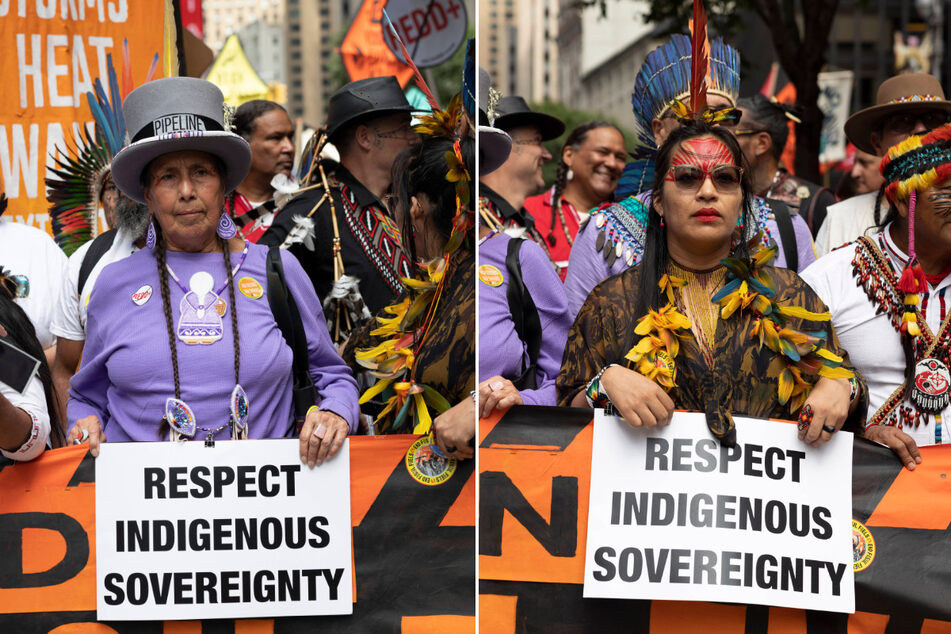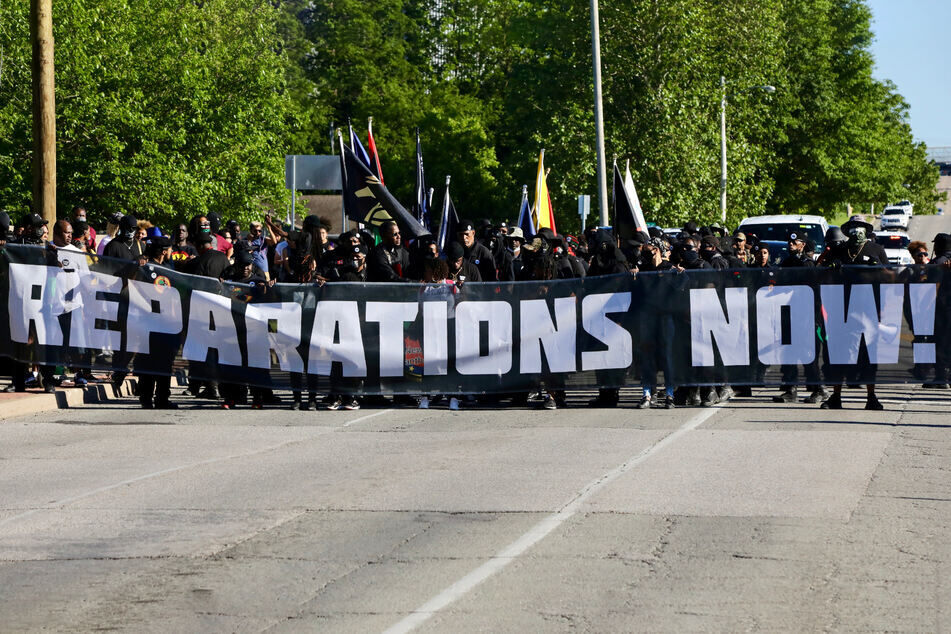Amnesty International urge reparations for Black Americans and Indigenous Peoples
Geneva, Switzerland - During the 139th session of the United Nations Human Rights Committee, Amnesty International is once again calling for reparations from the US government for Black Americans and Indigenous Peoples.

The International Covenant on Civil and Political Rights, ratified by the US in 1992, states that all peoples have the right to self-determination, and that all people within a territory have equal rights regardless of race, color, sex, language, religion, political or other opinion, national or social origin, property, birth, or other status. In cases where people's rights are violated, they should have an effective means of seeking remedy.
Amnesty International builds on these articles to make the case for reparations to address the US' ongoing legacies of colonialism and chattel slavery.
Indigenous Peoples have lost "nearly 99% of land since colonization," and they have been subjected to centuries of genocide, including forced cultural erasure through systematic family separations and racist boarding schools, Amnesty wrote in a report submitted ahead of the session.
Human trafficking, violent family separations, forced cultural erasure, and denial of civil and political rights have also characterized the experiences of most Black people in the US for generations.
"While there are undoubtedly differences between Black Americans and [American Indians and Alaska Natives], wherein lies the glaring similarity is the need for reparatory justice after centuries of systemic and institutional human rights violations upon which the USA was founded," the report states.
Amnesty International calls for reparations for past and present harms

Amnesty International goes on to connect the history of anti-Black and anti-Indigenous oppression with present-day racial disparities.
The ability for Black and Indigenous people to accumulate generational wealth, which Amnesty identifies as key to self-determination, has been stymied by centuries of racist policies. As a result, Black families today, on average, have a net worth around 10 times less than white American families, while Indigenous and Black Americans have the highest poverty rates at 24.3% and 19.5%, respectively.
Amnesty notes that discriminatory policies also impact Black people who do not trace their descent to enslaved ancestors, as systemic anti-Black racism remains rampant in housing, education, the criminal legal system, health care, employment, and more.
Recent court decisions to gut federal voting rights protections and affirmative action programs have only made matters worse.
"Systemic racism in the USA more broadly is a legacy of colonialism and the history of chattel slavery that impacts other people of African descent and racialized groups. Thus, any reparation, should also include measures to address contemporary forms of racism," Amnesty writes.
What does the Amnesty International report recommend?
Ultimately, the report recommends that Congress consult with Black and Indigenous communities to develop policies that provide reparations and ensure self-determination.
It also urges passage of three key pieces of legislation:
- H.Res.414, a resolution introduced by Representative Cori Bush calling for at least $14 trillion in reparations to Black Americans;
- H.Con.Res 44, a resolution to create a US Commission on Truth, Racial Healing, and Transformation; and
- H.R.40, a bill to establish a Commission to Study and Develop Reparation Proposals for African Americans.
The 139th session of the United Nations Human Rights Committee takes place from October 9-November 3, 2023, with reparations sure to be part of discussions.
Cover photo: Collage: IMAGO / ZUMA Wire

